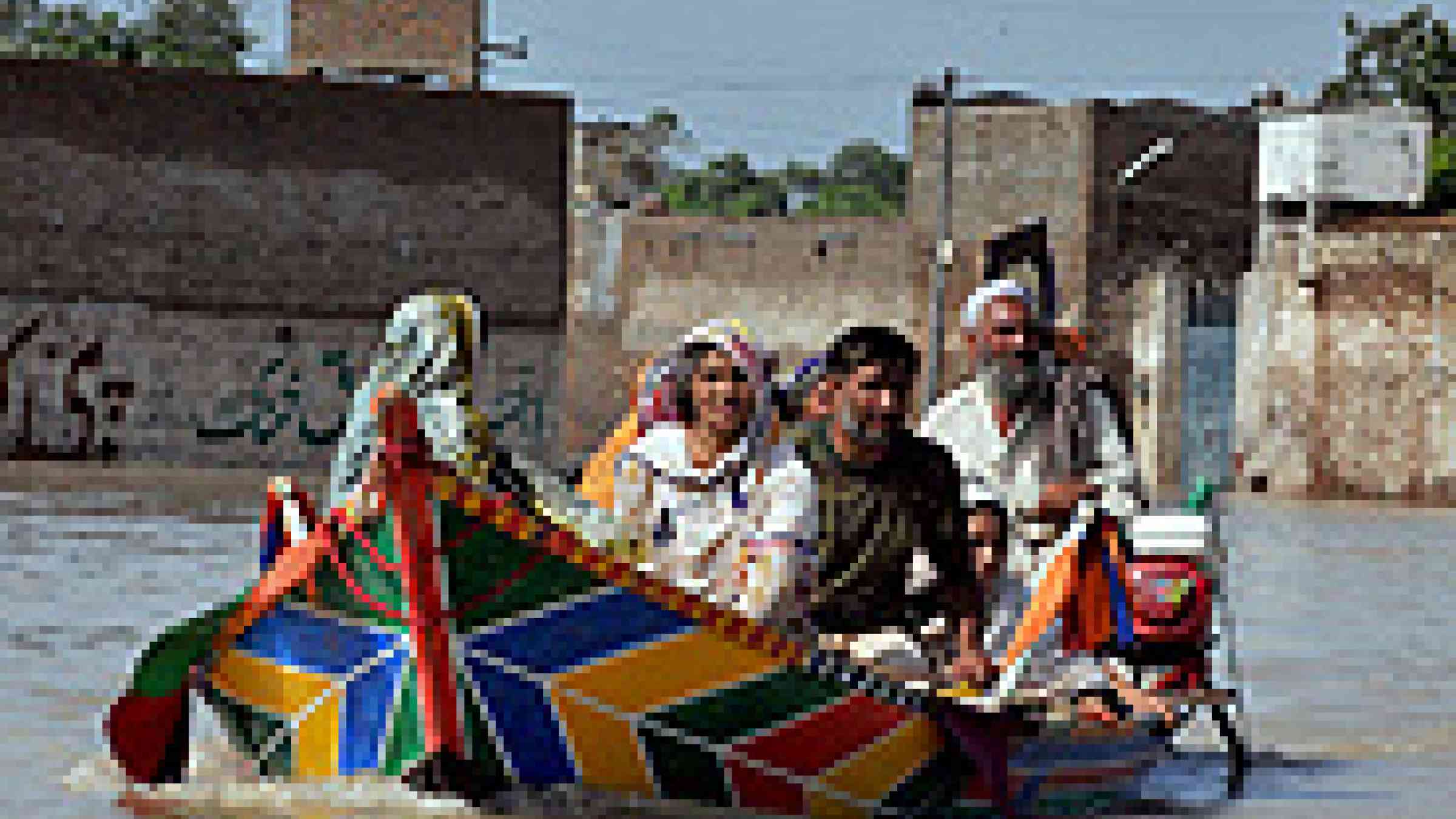UNISDR: Pakistan cannot risk its future, lives of people, by being ill-prepared

UNISDR Press release 2011/6
Islamabad, Pakistan - Margareta Wahlström, United Nations Special Representative of the Secretary-General for Disaster Risk Reduction, told journalists in Islamabad on Tuesday that Pakistan faces massive future losses in lives and livelihoods by not investing now in mechanisms that mitigate risk.
Pakistan is at continued risk to disasters, whether man-made or triggered by natural hazards. The damage caused by the recent floods cost Pakistan an estimated US$ 8.74 billion to US$10.85 billion -- approximately one-third of the country's 2009-2010 budget. The World Bank and the Asian Development Bank have said an investment of only $27 million in disaster risk reduction mechanisms can greatly reduce losses from future disasters.
"Pakistan cannot afford to risk its future and lives of its people by being ill-prepared," said Ms. Wahlström, who was on a five-day visit to Pakistan hosted by international aid agency Oxfam. "As Pakistan begins the task of rebuilding, political will is needed to halt the disaster spiral."
Ms. Neva Khan, Pakistan director for Oxfam, said, "Now is the time to build up Pakistan's resilience to disaster. The cost of implementing safeguards pales in comparison to the damage to lives and property."
Although Pakistan's government, civil society and aid agencies have helped many millions of people, the unprecedented scale of the disaster has meant that most victims are primarily supported by their families and communities. Ultimately, however, it is government's responsibility to protect its people. Government leadership is needed to implement disaster risk reduction strategies and the role of the international community is to support it.
"The real heroes of our recent disasters are the millions of Pakistanis who stepped up to help their families and communities. Pakistan urgently needs damage mitigation strategies to lift the burden from their shoulders. Donors and the international community must ensure that resources reach those working on the ground to make disaster risk reduction a reality in Pakistan," said Lieutenant General (retired) Nadeem Ahmed, Chairman of the National Disaster Management Authority.
Ms. Wahlström visited a flood-hit community in southern Punjab, where she saw simple risk mitigation strategies at work, such as protecting food stores from floodwater or building housing on raised platforms.
During her visit, Ms. Wahlström also met Pakistani federal, as well as provincial, flood relief and reconstruction officials as well as representatives of international and national non-governmental organizations. She highlighted United Nations mechanisms to support governments pursuing disaster risk measures, including the Global Platform for Disaster Risk Reduction, where thousands of individuals active in disaster risk meet every two years to share information and set new directions. The next is scheduled for 8-13 May, in Geneva.
Noting that the government of Pakistan has signed on to international initiatives to reduce disaster risk, she said, "The immediate need is for commitment from stakeholders; without it, hard-fought gains will be in danger when the next disaster strikes."
For more information please contact:
Amil Khan
Oxfam International Media Officer Pakistan
+92 3085557219
[email protected]
Bisma Akbar
Oxfam National Media Officer Pakistan
+92 3456969902
[email protected]
Dizery Salim
Public Information Officer/Media Relations
Tel: +41 22 917 8918
[email protected]